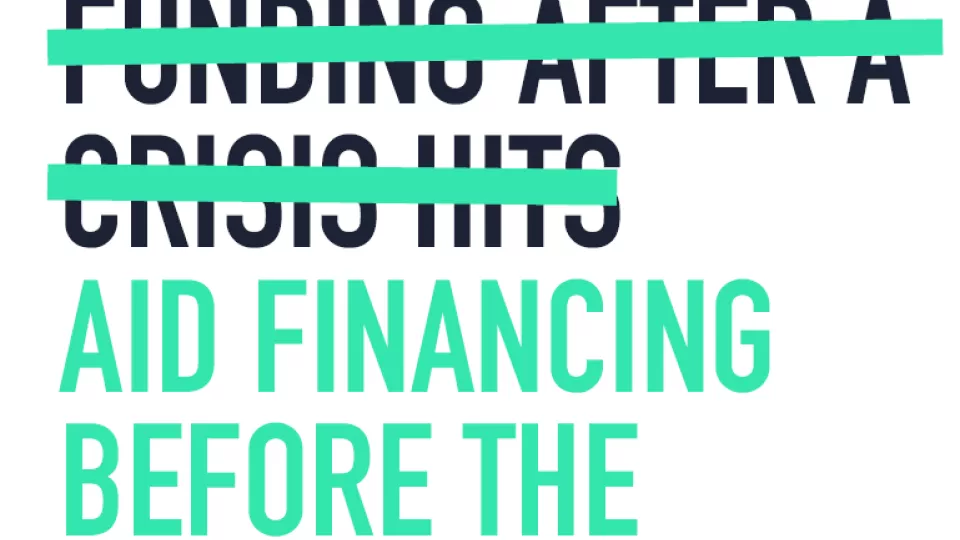
Anticipatory Action Task Force (AATF) ToR
Acting prior to a predictable hazard in order to safeguard lives and livelihoods, to reduce human suffering and losses and damages, is a faster, more efficient and more dignified response.

Acting prior to a predictable hazard in order to safeguard lives and livelihoods, to reduce human suffering and losses and damages, is a faster, more efficient and more dignified response.
Aunque la sequía se puede predecir con meses de anticipación, la asistencia humanitaria a menudo se retrasa porque se necesita tiempo para recaudar fondos después de que ocurre la crisis.
Bien qu'il soit possible de prévoir une sécheresse plusieurs mois à l'avance, l'aide humanitaire est souvent retardée, car une fois la crise survenue, il faut du temps pour collecter des fonds.
Although drought can be predicted months in advance, humanitarian assistance is often delayed – because it takes time to raise funds after the crisis has happened.
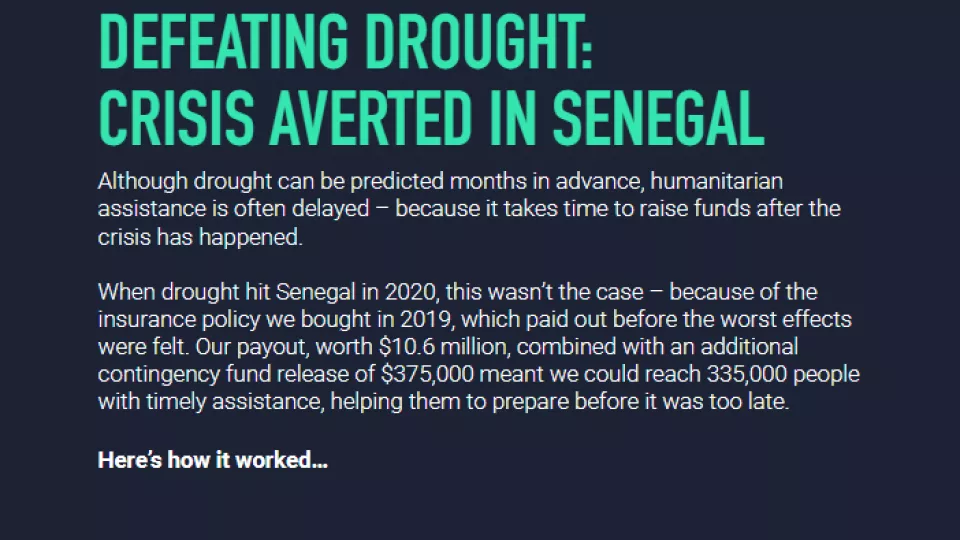
Although drought can be predicted months in advance, humanitarian assistance is often delayed – because it takes time to raise funds after the crisis has happened. When drought hit Senegal in 2020, this wasn’t the case – because of the insurance policy we bought in 2019, which paid out before the worst effects were felt. Our payout, worth $10.6 million, combined with an additional contingency fund release of $375,000 meant we could reach 335,000 people with timely assistance, helping them to prepare before it was too late.
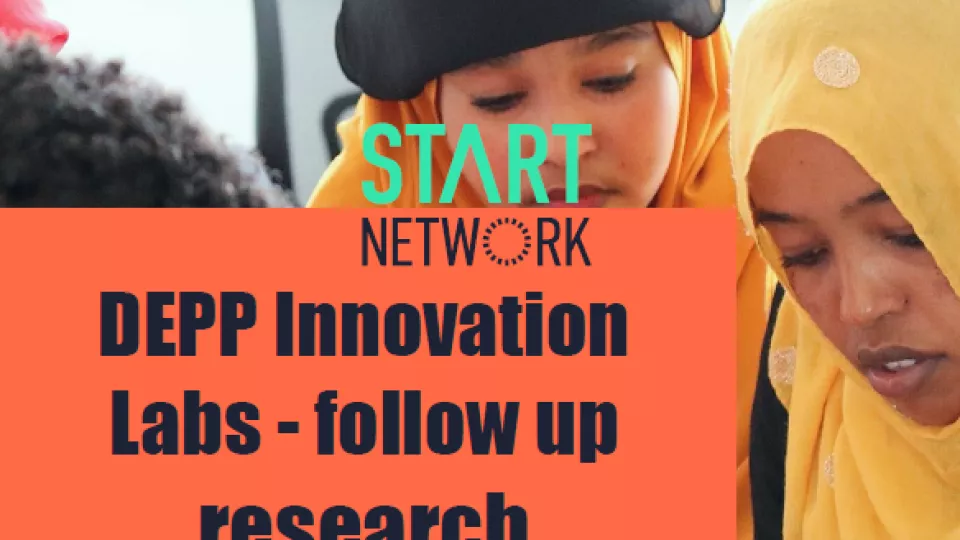
The DEPP Innovation Labs programme was a two and a half year initiative from 2016-2019 that supported the creation of four community-centred innovation labs in disaster-affected countries (Bangladesh, Jordan, Kenya and the Philippines) to strengthen disaster preparedness and response. The programme was managed by Start Network and the Communicating with Disaster Affected Communities (CDAC) Network. The labs offered skills training, business mentoring, financial support, and the necessary infrastructure to turn local ideas into viable, scalable solutions. All the innovation labs followed a human-centred design process to create local-level solutions that work for and with vulnerable people. Overall, the DEPP Labs supported close to 100 innovations covering a broad range of areas such as early warning communication systems, disaster awareness education tools, protective flood barriers, agricultural tech applications to counter the effects of drought and transport and accommodation solutions for refugees.
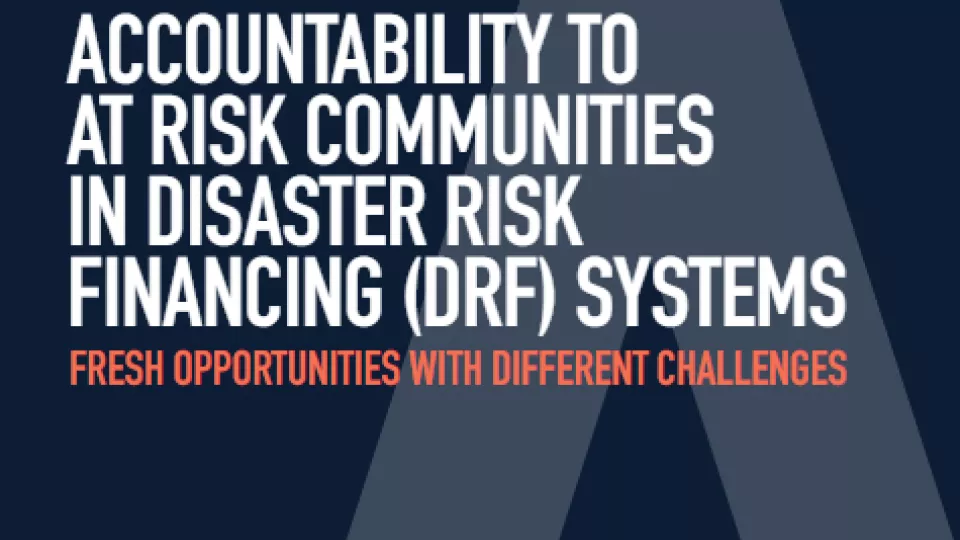
This paper explores the new opportunities and challenges for ensuring accountability to affected populations related to disaster risk financing. It draws on Start Network experience in Pakistan, Senegal, Madagascar and Kenya to discuss possible issues and challenges that DRF programming can present for accountability, and steps which can be taken to address these.

The monthly risk briefing reports on new, emerging or deteriorating situations; therefore, ongoing events that are considered to be unchanged are not featured and risks that are beyond the scope and scale of the Start Fund are also not featured. It is collated by the Start Network Anticipation and Risk Financing team using information from academia and research institutes, government departments, ACAPS, global risk indexes, risk information provided by Start Members and their partners, and the media. Key risks are shared and collated each month with FOREWARN input.
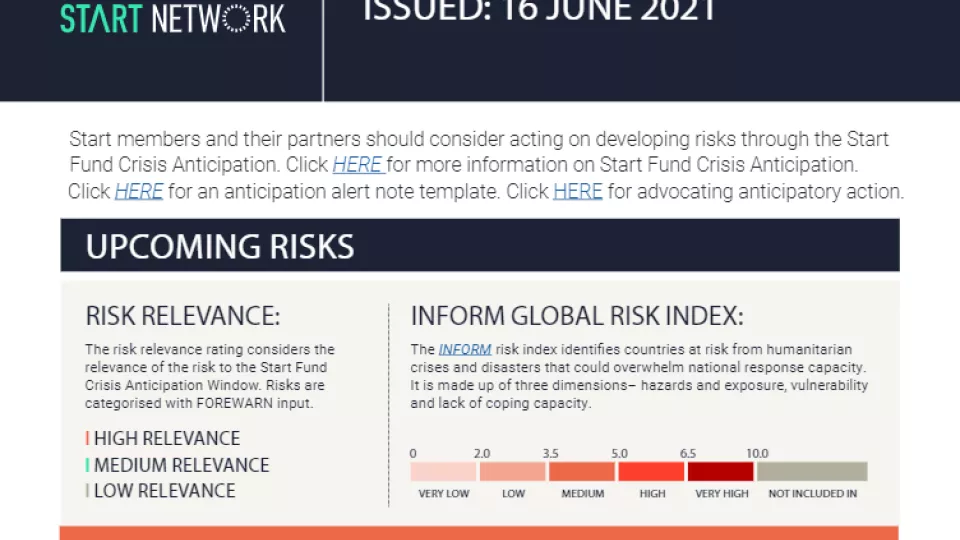
The monthly risk briefing reports on new, emerging or deteriorating situations; therefore, ongoing events that are considered to be unchanged are not featured and risks that are beyond the scope and scale of the Start Fund are also not featured. It is collated by the Start Network Anticipation and Risk Financing team using information from academia and research institutes, government departments, ACAPS, global risk indexes, risk information provided by Start Members and their partners, and the media. Key risks are shared and collated each month with FOREWARN input.
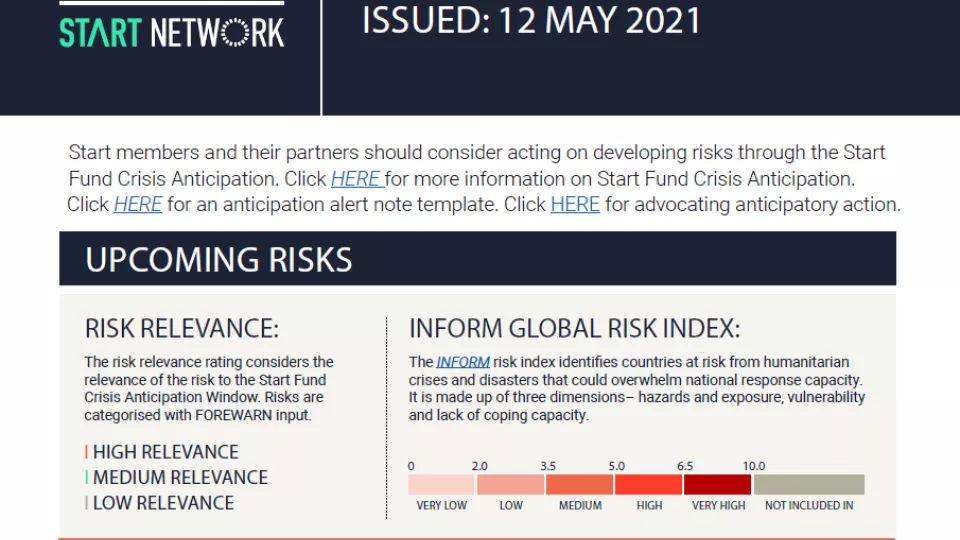
The monthly risk briefing reports on new, emerging or deteriorating situations; therefore, ongoing events that are considered to be unchanged are not featured and risks that are beyond the scope and scale of the Start Fund are also not featured. It is collated by the Start Network Anticipation and Risk Financing team using information from academia and research institutes, government departments, ACAPS, global risk indexes, risk information provided by Start Members and their partners, and the media. Key risks are shared and collated each month with FOREWARN input.